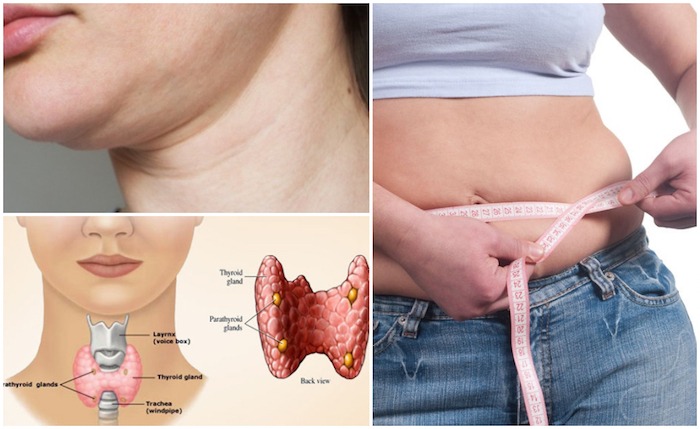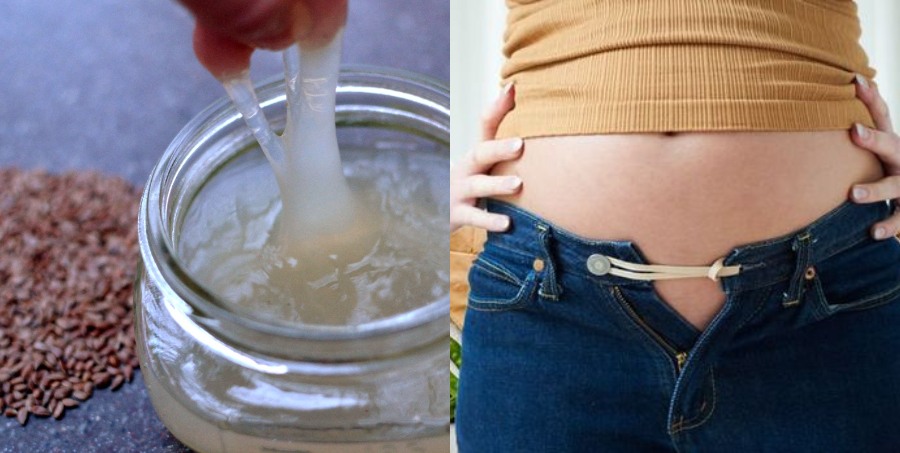Healthy eating, clean diet, and physical activity can set everything straight and alleviate any health issue, and we can say the same about hypothyroidism too. Hypothyroidism results from an underactive thyroid gland and appropriate treatment from a doctor becomes absolutely necessary to treat the symptoms. An underactive thyroid fails to produce enough T3 (triiodothyronine) and T4 (thyroxine) hormones, and these hormones are needed to regulate metabolism, and in such a situation, weight loss becomes a lot difficult. Thyroid is a butterfly-shaped gland that produces the thyroid hormone which is needed to regulate important functions in the body, from maintaining heartbeat, metabolism, nervous system, cholesterol, weight, etc. Weight gain or the inability to lose weight is one of the main issues associated with hypothyoridism. Since thyroid regulates metabolism, with hypothyroidism, metabolism becomes sluggish, and it becomes a bit difficult to lose weight. Also, with hypothyroidism, one can feel excessively tired and exhausted, leaving little room for exercise, bringing down the opportunity to lose weight by working out. So, in this post, we list down some effective ways to lose weight with hypothyroidism.


What is Thyroid?
Thyroid is a small, butterfly-shaped gland located at the base of the front of the neck, with each lobe on each side of the wind pipe. Thyroid produces thyroid hormones T3 and T4. The production of these hormones is regulated by TSH (thyroid stimulating hormone), which is made by the pituitary gland. When there is an under-production of T3 (triiodothyronine) and T4 (thyroxine), the body’s metabolism and a host of other important functions get affected and no matter what, you would feel tired and fatigued throughout the day along with developing a lot of other symptoms described below.
Symptoms of Hypothyroidism:
1. Weight gain/difficulty in losing weight.
2. Slow metabolism.
3. Constipation.
4. Puffy face and neck area.
5. Depression
6. Changes in menstrual cycle, heavy periods.
7. Increased sensitivity to cold.
8. Fatigue, feeling extremely tired.
9. Depression.
10. Muscle weakness.
11. Brittle fingernails.
12. Muscle and joint pain.
13. Difficulty focusing and concentrating.
14. Swollen legs.
15. Hair fall, bald patches on the scalp.

What Causes Hypothyroidism?
Hypothyroidism is a condition where there is malfunctioning of the thyroid gland because there is not enough stimulation from the thyroid stimulating hormone (TSH) which is released from the pituitary gland, which in turn is controlled thoroughly by the hypothalamus part of the brain. Following are some of the reasons that can cause hypothyroidism:
1. Hashimoto’s disease: It’s an autoimmune disorder where the body’s immune system targets and attacks its own cells and organs, even the thyroid hormone, leading to malfunctioning of the thyroid gland.
2. Certain medications can cause hypothyroidism.
3. Malfunctioning of pituitary gland which produces TSH which is needed for stimulation of thyroid gland.
4. Iodine deficiency in diet.
5. Inflammation of the thyroid gland.
6. Surgery where there is complete or partial removal of the thyroid gland.
7. Radiation exposure.
How Does Hypothyroidism Cause Weight Gain and Prevent Weight Loss?
People who suffer from hypothyroidism find it extremely difficult to lose weight despite following a strict diet routine and indulging in optimum physical activity. The thyroid gland is responsible for regulating metabolism and if there is under-activity in the production of thyroid hormones, the metabolism will automatically become sluggish and slow down which means you would not be able to effectively burn calories or fat. Low thyroid hormone levels bring down the basal metabolic rate or resting metabolic rate which directly affects the burning of calories. Excessive weight gain in hypothyroidism can also be due to increased salt and water accumulation in the body. You can lose up to 10% of your body weight after treating hypothyroidism.
How to Lose Weight with Hypothyroidism:
1. Amp up the Fiber Intake: Fiber is absolutely necessary for weight loss, more so when someone has hypothyroidism because a good amount of dietary fiber helps to regulate the digestive system. The dietary recommendation for women is 25 grams and 38 grams for men. Adequate fiber intake regulates blood sugar, helps to lower cholesterol, keeps one full for long thereby decreasing excessive calorie intake. Here’s a list of 32 Fiber Rich Food Items for Weight Loss.
2. Switch to Rati Beauty Weight Loss Diets: It’s important to eat the right kind of food to lose weight and Rati Beauty has weekly diet programs for everyone. Check those out here.
3. Avoid Starchy Carbs: Many health experts suggest going low carb on hypothyroidism to alleviate symptoms. Starchy foods like white bread, white rice, pasta, potato, should be replaced with complex carbs such as brown rice, oats, and sweet potato.
4. Lots of Green Vegetables: As your doctor might have suggested, avoid cruciferous vegetables like cauliflower, cabbage, broccoli, etc., because they are believed to hamper the function of thyroid gland. Instead, increase green leafy vegetables in your daily diet to boost weight loss because they are extremely low in calories, full of nutrition, and regulate blood sugar as well.
5. Include Lean Proteins: Protein keeps you full for a longer period and boosts the release of satiety hormone “leptin.” It is also necessary for the synthesis of important hormones and essential enzymes and for the creation of antibodies to strengthen the immune system. Here’s the list of 15 Food Sources of Lean Protein that Can Help with Weight Loss.
6. Say no to Processed Foods: With their high transfat, sodium, sugar, hydrogenated oil content, processed food can lead to weight gain in someone suffering from hypothyroidism – totally avoid such food to lose weight.
7. Cut out Refined Sugar: Sugar raises inflammation in the body and can worsen hypothyroidism. Follow a low-glycemic diet and cut out refined sugar completely.
8. Eat Enough Calories: Going lower down in calories can trigger a stress response in the body, which can in turn decrease T3 production. Eat optimum amount of calories, do not crash diet, and switch to healthy diets on Rati Beauty app.
9. Do not Skip Essential Nutrients: Nutrients such as magnesium, B vitamins, selenium, iron, vitamin C, zinc, etc., are needed for healthy thyroid function, do make sure you are getting these through your diet.
10. Probiotics are for everyone: A robust gut is the answer to many health issues, including hypothyroidism. Feed the healthy bacteria in your gut with probiotics and you would be able to see positive changes in hormonal levels, weight loss, to thyroid function. Here’s a list of 10 Best Probiotic Foods that are Good for your Gut.
11. Exercise Regularly: The great deal of fatigue that one experiences with hypothyroidism can actually be reversed by doing the right kind of exercise. Brisk walking, yoga, stretching can help bring back the energy and can improve muscle stiffness.
12. Sleep Well: Various studies have linked sleep deprivation to sluggish metabolism, obesity, imbalance in hormones, and overall poor health. It’s essential to get at least 7 hours of sleep in the night to give the body a chance to reset and recover, and balance out all essential hormones, including thyroid hormones.
13. Get Enough Water: Water is needed for the metabolism to work efficiently and to improve digestion, and in the smooth running of a majority of body functions. Do not stop at just 8 glasses of water, drink another 8 glasses of water to boost your weight loss efforts.
14. Gluten-Free Diet: A gluten-free diet aids in the better absorption of thyroid medication and reduce inflammation level in the body. Switch to a gluten-free diet for a few days and observe if there are any positive changes with regards to weight loss.
Apart from all the points mentioned above, do get your daily dose of healthy fats by including ghee, coconut oil, eggs, etc. to boost your weight loss efforts. Also, avoid soy-based products, alcohol, vegetable oils, and also artificial sweeteners (if you are thinking about replacing white sugar with these sweeteners).
32 Fiber Rich Food Items for Weight Loss
22 Best Fruits to Include for Weight Loss





